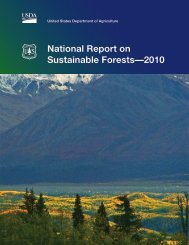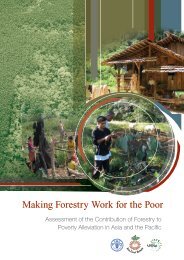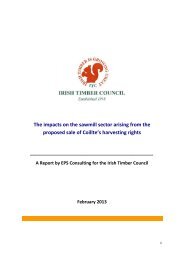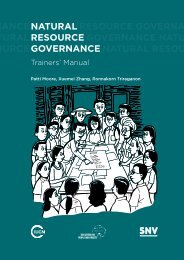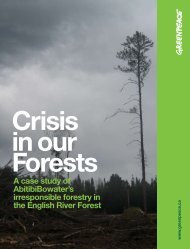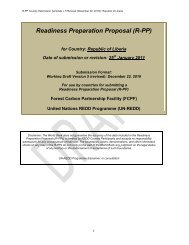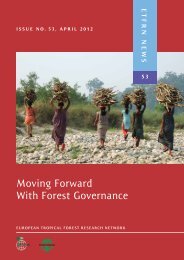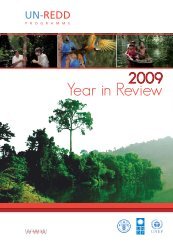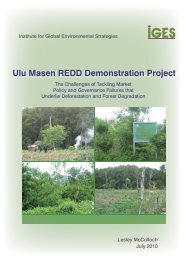pdf 1242 KByte - JIKO
pdf 1242 KByte - JIKO
pdf 1242 KByte - JIKO
Create successful ePaper yourself
Turn your PDF publications into a flip-book with our unique Google optimized e-Paper software.
Policy Paper: Assessing prerequisites for market-based REDD+ activities 22<br />
mainstreaming of forest protection considerations into other policy fields will represent a complex and timeconsuming<br />
process, countries will also have to make a choice on the policy instruments in the forestry sector.<br />
3.3.2 Choosing the adequate forestry policy instruments<br />
Under a future REDD+ scheme, a great variety of policy instruments may be available to individual REDD+<br />
countries. Making a decision on which policy might work best is strongly linked to the identification of the<br />
underlying causes of deforestation as well as an analysis of the specific national circumstances.<br />
Payments for environmental services (PES)<br />
Payments for environmental services (PES) can be defined as “voluntary, conditional transactions between at<br />
least one buyer and one seller for well-defined environmental services or corresponding land use proxies”<br />
(Wunder 2009). Once established, a functioning REDD+ mechanism will in itself represent a PES-like system<br />
functioning either via public funding or carbon markets. In a national level PES system, individuals and<br />
communities voluntarily enter a contractual relationship with the buyer to receive payments for environmental<br />
services. For such a contract to be concluded, the level of payments the sellers receive for their environmental<br />
services has to be high enough to make the protection and enhancement of forests more attractive<br />
than their destruction. Difficulties in estimating these dynamic opportunity costs can be extraordinarily high,<br />
for instance when not dealing with a well-functioning market, where the perceived opportunity costs could<br />
deviate extremely from the costs a market would suggest. For some practices opportunity costs may even be<br />
inappropriate, for instance for illegal logging activities (Gregersen et al. 2010).<br />
Furthermore, for such a system to function, exclusivity of land rights (tenure) and equitable benefit sharing<br />
agreements have to be established. However, these conditions are not met everywhere. In the Brazilian Amazon,<br />
for instance, 67% of the threatened forestland is subject to ill-defined or non-clarified tenure (Börner et<br />
al. 2011). PES may further pose large burdens on forest dependent peoples, since the costs for quantification<br />
of mitigation levels might be too high. Even if communities have the necessary resources to contract technical<br />
assistance, there may not be sufficient advisors with the adequate experiences. The experiences from<br />
Mexico show that most land users need professional assistance in order to access payments for water, biodiversity<br />
or carbon services (FAO 2012).<br />
Concessions for forest protection<br />
Another policy option for implementing REDD+ is recurring to existing commercial forestry management<br />
arrangements such as forest concessions, where the government concedes the right to use the forest and demands<br />
royalties or other fees in return (Costenbader 2011). The government can then freely distribute these<br />
revenues among local or regional governments and local communities. While this represents one major advantage<br />
for countries without an adequate legal REDD+ framework, corruption is one main concern with this<br />
approach. Government officials may make an arrangement with large companies and decide on a concession<br />
at the expense of local communities, which are not properly involved in the decision-making process. Even if<br />
local communities are actively and freely participating in the decision-making, the risk of uneven revenue<br />
distribution remains high (Costenbader 2011).<br />
Community forest management<br />
The advantages of consigning the management of forests to the communities living in and from these forests<br />
seems most obvious, particularly since there are vast experiences with communities managing forests. About<br />
Nicolas Kreibich, Christof Arens and Wolfgang Sterk<br />
Wuppertal Institute




